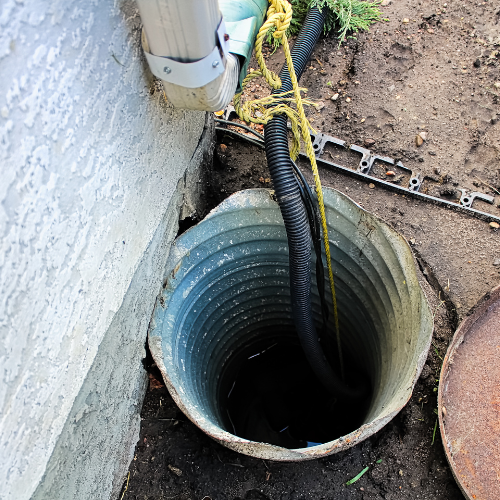How long do sump pumps last?
by Admin

Sump pumps are essential for homeowners who wish to keep their basements dry. The lifespan of a sump pump depends on the frequency with which it is used and how well it is maintained.
With proper maintenance, the average sump pumps will last 7-10 years. It is important to note that this is not an exact science, and certain factors can affect their life expectancy.
Battery Life
Battery-operated backup pumps are an excellent way to keep your basement dry and prevent flooding. These sump pumps are powered by a battery. They come in a variety of sizes and capacities to suit your needs.
The average backup sump pumps will last for a year, or even longer depending on the frequency of use and maintenance. Check the battery fluid level, replace the batteries on a regular basis and run it regularly to make sure it's in good shape.
You should buy a backup sump-pump with a high Ampere Hour (AH) rating if you want it to survive an outage. This rating will tell you how long your system will work without electricity.
Electricity
Electricity plays a major role in our daily lives. Electricity powers our televisions, computers, and furnaces.
It's also important to consider the battery backup system's ability to provide power over a longer period of time. A two-stage system is the best choice. It uses a backup battery to power a primary sump pump in times of electrical failure and switches to a second pump for normal operation.
These systems are powered by lead-acid battery. These batteries have an ampere-hour rating and a sufficient capacity to power the backup sump pumps continuously. Fully-charged new batteries can last 3-7 hours for continuous pumping, and 1-1 days without any continuous operation.
Maintenance
Sump pumps move water out of your basement to prevent flooding and structural damage. Like other systems, sump pumps require maintenance to run at their best.
Routine inspections, cleaning and maintenance can extend the life of your system and prevent costly repairs in the future. Many homeowners hire professionals to do these jobs, but some basic tasks can be done by you.
Check for Corrosion or Other Debris. To prolong the life of your sump-pump, remove it and thoroughly clean it. Included in this are the discharge pipe as well as the inlet screen.
It is important to test it regularly. Pour a few gallons into the sump pit once a year and watch its response. It may not work properly if it doesn't respond or turns off when water reaches the predetermined level.
Some plumbing problems are easily fixed by a plumber, while others need professional help. If the float switch doesn't work properly, for example, the pump may become overworked, and eventually break down.
Rust
Rust on sump pump can reduce their life expectancy and decrease their effectiveness. This can also increase the likelihood of the pump clogging.
Pumps can generally last 7 to 10 years. The average life expectancy of pumps depends on their use and how well they're maintained.
Corrosion is the cause of a sump pump that doesn't work when it should. This can be caused by a tangled switch or wiring issues within the pump.
A sump pump that is malfunctioning will also cycle on and off continuously. This can happen during periods of prolonged dry weather, or heavy rain.
https://www.onpointplumbingandheating.com/
Sump pumps are essential for homeowners who wish to keep their basements dry. The lifespan of a sump pump depends on the frequency with which it is used and how well it is maintained. With proper maintenance, the average sump pumps will last 7-10 years. It is important to note that this is not an…
Recent Posts
- Debunking Common Myths and Misconceptions About Dentures
- Debunking Common Myths and Misconceptions About Dentures
- Effective Strategies for Improving Heating Efficiency in Albuquerque Homes
- The Importance of Managed IT Services for Cincinnati Businesses
- Why Professional Mold Removal is Crucial for Effective Mold Management in Queens and Staten Island
